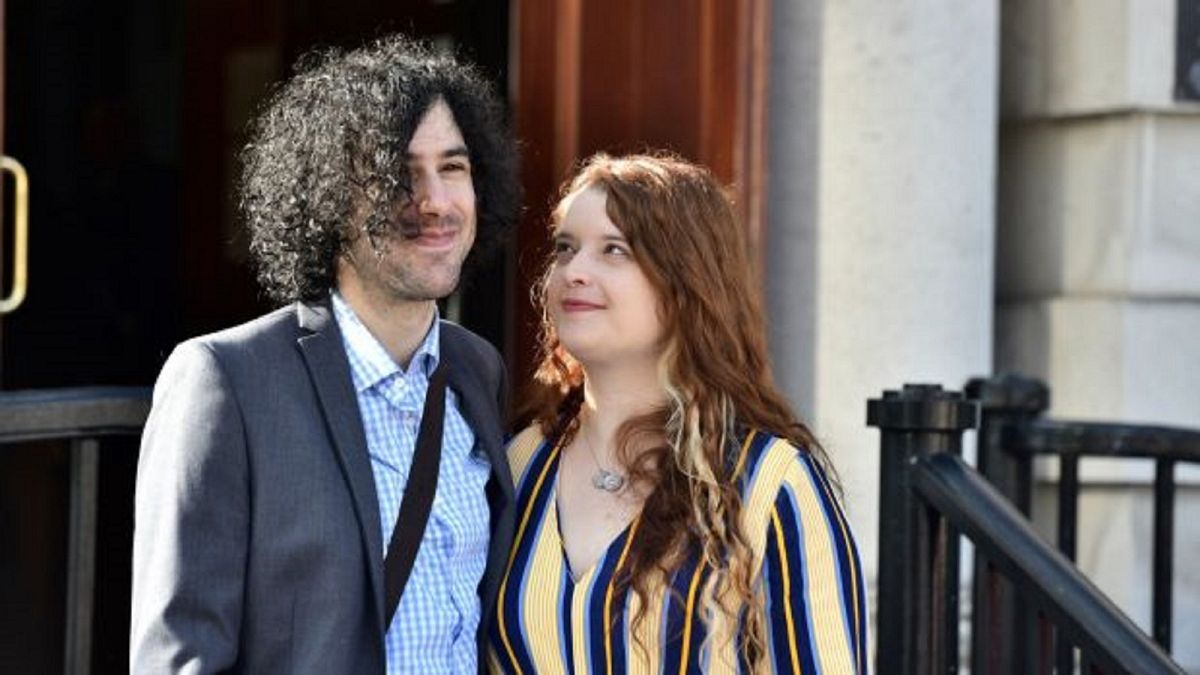The British government has stated that the people of Northern Ireland remain British citizens even if they identify as Irish, and are using this policy as a way to restrict and remove the EU rights and entitlements of Northern Ireland-born Irish citizens.
The British Home Office has enlisted one of the most advanced constitutional lawyers in the UK to prepare a legal case that declares that I - and all the people of Northern Ireland - am British. I am in fact an Irish national; Irish by birth, by law and by virtue of the Good Friday Agreement.
The right to identify and be accepted as Irish or British, or both, is a central tenet of the agreement itself – a lynchpin of equality in Northern Ireland. If successful, the British government will nullify that equality and rewrite the purpose and intent of its ‘birthright’ provisions, tearing up a compromise that ended decades of violence and conflict in the process.
The British government has stated that the people of Northern Ireland remain British citizens even if they identify as Irish, and are using this policy as a way to restrict and remove the EU rights and entitlements of Northern Ireland-born Irish citizens.
For four years, the Home Office, on behalf of the British government, has pursued a legal challenge against me and my US-born husband. It began as a simple immigration case when we applied for an EEA residence card, and has morphed into a constitutional test of the Good Friday Agreement. One that the UK government is keeping tightly under wraps.
What our case uncovered in 2015 was a discriminatory policy from the Home Office that runs contrary to the birthright provisions – that right to be accepted as Irish or British, or both. The department denied our application on the grounds that I am considered automatically British, having been born in Northern Ireland. I have never held a British passport, or claimed British citizenship.
Words cannot accurately describe the feeling of having your lifelong identity brought in to question by a government department. Being Irish was neither a choice or decision I made, it is simply who I am.
To be accepted as Irish, the Home Office suggested I renounce British citizenship, a process that requires an individual to firstly accept that they are British, prove that they are British, declare themselves as British and pay a hefty fee to do so. A policy that is only required of one community in Northern Ireland - those who identify as Irish, raising questions over government interference with Articles 8 and 14 of the European Convention on Human rights.
We appealed the decision of the Home Office and won - a decision the Home Office deems a “fundamental and egregious error of law.” At a hearing in the Upper Tribunal last week, Tony McGleenan QC, who is taking directions from the Secretary of state for the Home Department herself, argued that I am not nor was I ever an “EEA national.”
Their argument is two-fold. First, the government seeks to create a distinction between identity and citizenship under the Good Friday Agreement, claiming that in 1998, people voted for a non-binding recognition that they can identify as they please, not that they can choose their citizenship. There are many that will disagree with this erroneous interpretation. Second, that even if the birthright provisions were to mean a choice of citizenship, that right does not exist in domestic UK law.
Sound the alarm bells. The British government is once again showing its aversion to international law and obligations, claiming that “a treaty HMG is party of does not alter the laws of the United Kingdom.” It is an argument that further cements the need for a legally operable backstop.
A failure of the UK government to give domestic legal effect to a provision of a treaty does not absolve the government of its obligations under international law. Identity in Northern Ireland cuts across religion, political expression and national identity, and what we’re dealing with here is a government willfully ignoring the delicate identity balance that exists in Northern Ireland. A government that is tone deaf to the sensitivities and historical significance of the region. A government that is on course to rewrite a fundamental provision of the Good Friday Agreement without the consent of the people of this island.
We were represented by Ronan Lavery QC, who urged the tribunal to imagine that the Germans had won the Second World War and imposed German citizenship on all British people. He asked: “Wouldn’t Britons find it offensive to have to go through a process of renouncing German citizenship?”
The Home Office was represented by an experienced Crown Solicitor, junior counsel & one of the most advanced constitutional lawyers in the UK with a further three Home Office officials. This speaks volumes as to how keen the British government are to minimize the reading and impact of the Good Friday Agreement. And to what end?
What is it about UK policy that would require a government to foist citizenship on people who do not want it? Imposing citizenship hardens identities. For two decades, thanks to the blanket of EU law and the Good Friday Agreement, we’ve had an open space to soften identity lines in Northern Ireland.
If the government is successful in this legal challenge, one which they’ve stated they will continue to pursue, people will be forced to make a choice. A choice based on access to rights. A choice that will stoke tensions and create divides between the two communities of Northern Ireland. A choice that the Good Friday Agreement is designed to protect.
- Emma DeSouza is an immigration and citizens' rights campaigner from Northern Ireland
_________
Are you a recognised expert in your field? At Euronews, we believe all views matter. Contact us at view@euronews.com to send pitches or submissions and be part of the conversation


